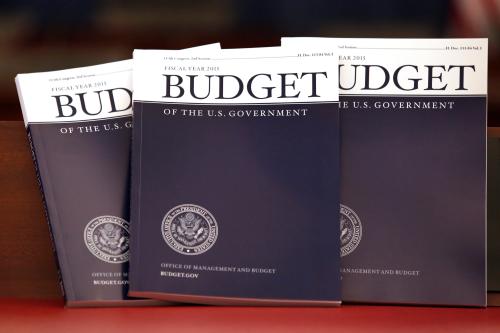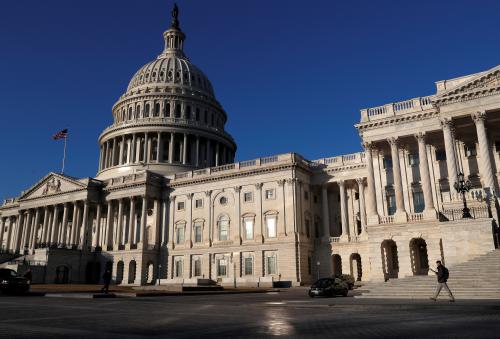This article originally appeared on The Hill on January 29, 2018.
Recent political rhetoric in Washington has been dominated not by advocacy and explanation of competitive policy proposals, but by party partisans blaming and demonizing each other. The swelling chorus of competitive blaming reached a crescendo with the government shutdown. Indeed, the shutdown was all about blaming. It has no other rationale.
Sensible parents dealing with squabbling children (“He hit me first!” “She doesn’t play fair!”) know better than to try to sort out the blame question. They start with a timeout to let tempers cool and then enlist the erstwhile warring parties in a cooperative project. It often works. Suppose our elected policymakers were to call timeout and take a pledge to stop blaming each other for a month. With congressional and presidential approval ratings in the cellar and nothing constructive getting done, with so far not even a budget for the current fiscal year, what have they got to lose?
The pledge would rule out blaming the state of the nation or the world on prior presidents or the other party and pinning failure to reach agreement on the irresponsibility of the other side. Instead of leaning on these reliable crutches, participants in policy debate would have to focus on defining the problem they want to solve, proposing solutions, and explaining with evidence, not slogans, how their preferred solutions are supposed to work.
Could they do it? Some might stammer, as they are nervous on unfamiliar ground. Constructive policymaking is a whole lot harder than trading insults. That’s the whole point. The United States is a very fortunate country, but we face serious challenges at home and abroad that have no pat solutions. The time and energy devoted to blaming each other has kept our elected policymakers from carrying out even their most basic responsibilities, such as funding the activities of government that most of the public is counting on in the near term.
The time and energy devoted to blaming each other has kept our elected policymakers from carrying out even their most basic responsibilities.
It has totally crowded out serious discussion of genuinely hard problems that demand thoughtful give and take and balancing of competing objectives and interests. No one party has a monopoly on wisdom in dealing with tough issues like immigration policy, health reform, rising inequality, financial instability, or climate change. A moratorium on blaming would create some space for serious discussion about what to do in the face of these challenges.
On Capitol Hill, the shutdown debacle has energized the sensible moderates in both parties — yes, there are quite a few — to turn from blaming to governing. Sens. Susan Collins (R-Maine) and Joe Manchin (D-W.V.) have attracted an encouragingly large bipartisan group of colleagues to try working constructively together. Sens. Dick Durbin (D-Ill.) and Lindsey Graham (R-S.C.) lead a hardworking bipartisan group determined to craft at least a partial solution to the immigration crisis. Even in the more partisan House, constructive bipartisanship groups, such as the Problem Solvers Caucus, could swell the ranks of non-blamers.
If these promising beginnings proved strong enough to avoid torpedoes launched by a blame-obsessed president and short-sighted ideologues in both parties, they could be the leading edge of a movement that restores confidence in the ability of American democracy to solve problems. Sensible moderate voters yes, there are many of those, too — should rush to reward these constructive efforts at the polls.
The stakes are high. A simple timeout and a no-blaming pledge could be the first steps to restoring constructive national policymaking.






Commentary
Op-edCongress: Take a timeout from playing the political blame game
February 12, 2018